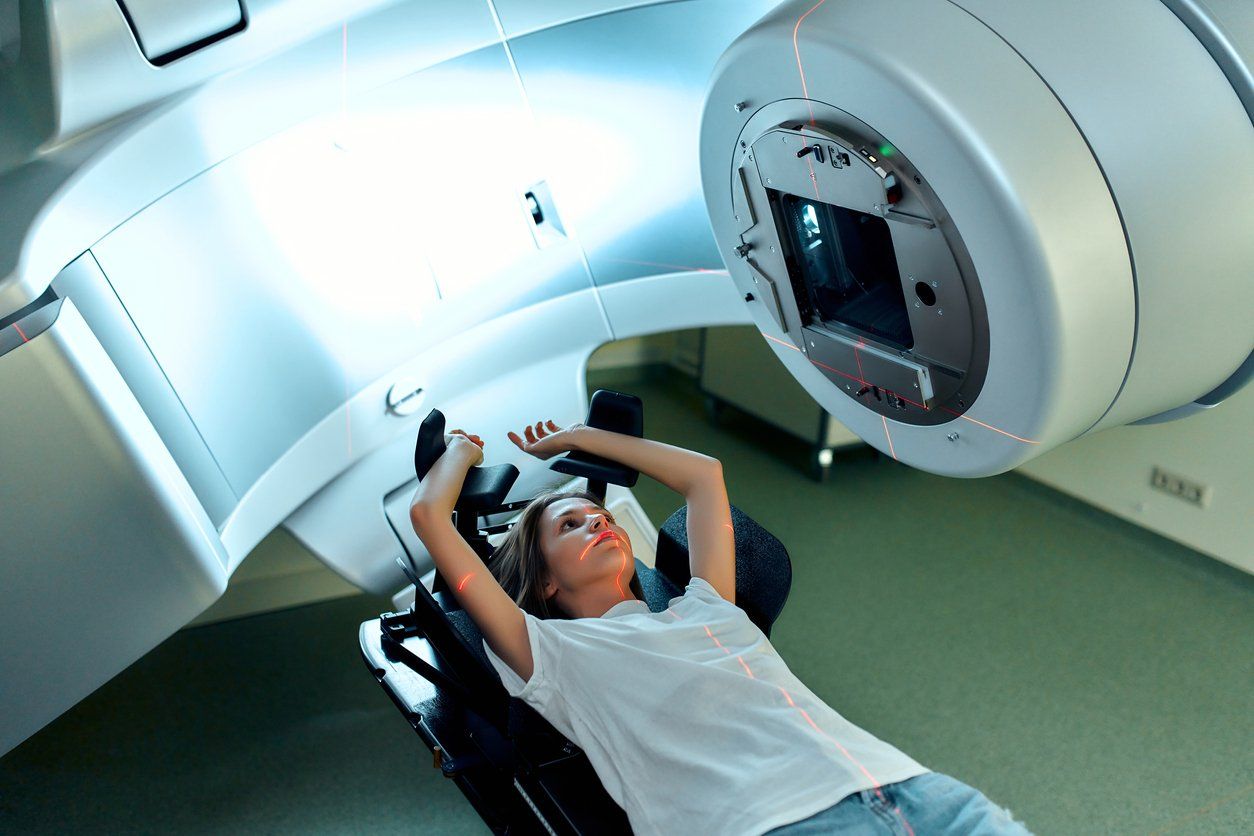Q:
What changes in my breast should I expect after having radiation for cancer?
A:
Many women diagnosed with breast cancer undergo radiation therapy. Radiation can be given following a lumpectomy, mastectomy, or prior to these surgeries in order to shrink the tumor. Although radiation is a localized treatment, aimed only at the cancerous area of your breast, some normal tissue will be affected, and regardless of when during the course of your breast cancer treatment you receive radiation therapy, you may experience one or more side effects due to the high-energy x-rays.
Many of the side effects of radiation to the breast involve skin changes. After about two weeks, you may notice the skin on the treated breast changing color. It may turn pink or red (due to irritation), or tanned (due to the action of radiation on pigment-producing cells). A few weeks later, the skin may become dry and start to peel, much like a sunburn. A good water-based moisturizer or aloe vera gel, applied twice a day, will help. It's also important to keep your skin clean, using unscented soap (try a soothing oatmeal-based soap) and warm water; do not use deodorant on the treated side; wear loose cotton clothing; and protect your skin from the sun, extreme temperatures, and wind. Sometimes the peeling is wet, like a blister, in which case a stronger topical treatment is needed such as silvadine ointment that is used for burn victims. In the later stages of your treatment, the radiated skin may become thin and/or hard. Your skin condition may continue to deteriorate for a week of so after radiation is finished, but then you will notice a marked improvement, although your skin may remain more sensitive to the sun. A sunblock of at least SPF 30 is recommended. Your skin may be more susceptible to radiation-induced changes if you have a fair complexion and you sunburn easily; you are receiving a high dose of radiation; or you have recently had chemotherapy.
Your breast may feel sore, heavy and appear swollen, due to build-up of fluid, or it might actually shrink a bit as a result of fibrous tissue developing in the radiated area. The skin may be more or less sensitive to touch, and the breast might feel firmer or thicker than normal.
Depending on the area of your breast that is being treated, some lung tissue may be exposed to radiation as well. You may experience shortness of breath and/or a dry cough because surfactant, which keeps the lungs and airways open, is decreased. This condition can be treated with steroid drugs. There has always been a question as to whether radiation to the breast causes lung cancer later on. A recent study has shown that lumpectomy followed by radiation does not increase a woman's chance of developing lung cancer, but mastectomy followed by radiation doubles the risk after 10 years.
One permanent side effect of radiation to the breast is that it cannot produce milk as before, and if you are planning on having a baby, your ability to breastfeed on that side will be compromised. In addition to all of these potential changes in your breast, you may also experience a generalized feeling of fatigue. If you feel more tired than normal, be sure to get enough rest, avoid strenuous activity and eat a healthy diet. Over the course of your radiation therapy, your blood counts will be checked regularly so make sure you do not have anemia or any other conditions. If you develop any of the side effects mentioned above, it is very important that you discuss them with your health care professional.


